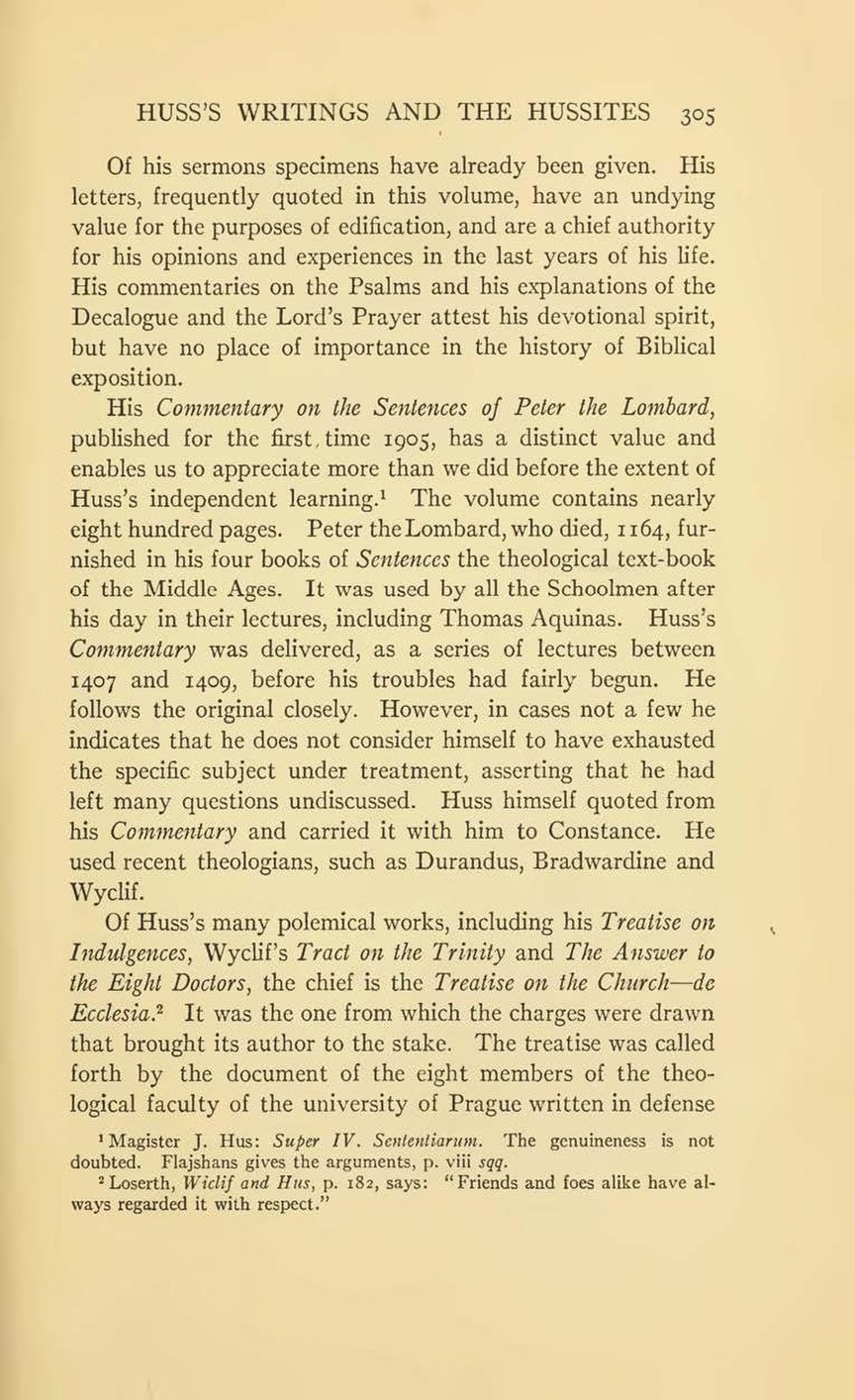Of his sermons specimens have already been given. His letters, frequently quoted in this volume, have an undying value for the purposes of edification, and are a chief authority for his opinions and experiences in the last years of his life. His commentaries on the Psalms and his explanations of the Decalogue and the Lord’s Prayer attest his devotional spirit, but have no place of importance in the history of Biblical exposition.
His Commentary on the Sentences of Peter the Lombard, published for the first time 1905, has a distinct value and enables us to appreciate more than we did before the extent of Huss’s independent learning.[1] The volume contains nearly eight hundred pages. Peter the Lombard, who died, 1164, furnished in his four books of Sentences the theological text-book of the Middle Ages. It was used by all the Schoolmen after his day in their lectures, including Thomas Aquinas. Huss’s Commentary was delivered, as a series of lectures between 1407 and 1409, before his troubles had fairly begun. He follows the original closely. However, in cases not a few he indicates that he does not consider himself to have exhausted the specific subject under treatment, asserting that he had left many questions undiscussed. Huss himself quoted from his Commentary and carried it with him to Constance. He used recent theologians, such as Durandus, Bradwardine and Wyclif.
Of Huss’s many polemical works, including his Treatise on Indulgences, Wyclif’s Tract on the Trinity and The Answer to the Eight Doctors, the chief is the Treatise on the Church—de Ecclesia.[2] It was the one from which the charges were drawn that brought its author to the stake. The treatise was called forth by the document of the eight members of the theological faculty of the university of Prague written in defense
- ↑ Magister J. Hus: Super IV. Sententiarum. The genuineness is not doubted. Flajshans gives the arguments, p. viii sqq.
- ↑ Loserth, Wiclif and Hus, p. 182, says: “Friends and foes alike have always regarded it with respect.”
